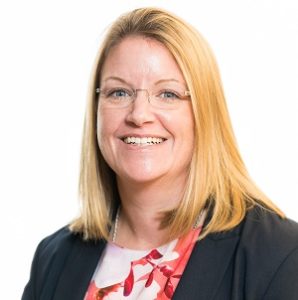Pension freedoms have given those with money purchase pensions greater choice in retirement than ever before.
However, with choice can come confusion, making advice in this area even more important, writes Claire Trott, head of pensions strategy at St James’s Place.
When you also factor in international aspects of retirement planning specialist advice in multiple areas is often needed.
Basic necessities
Recent SJP research, conducted with 4,000 adults in the UK, revealed 66% do not know how much they should withdraw from their retirement fund each year.
In addition, among those that have accessed their funds, a quarter (26%) admitted they underestimated how much income they need.
Advisers should conduct in-depth investigations into what basic needs a client has, as well as what their aspirations are in retirement.
Not just focusing on the obvious day-to-day income needs, but on those things that may need to be replaced over time, such as white goods or cars.
These won’t be an annual expense but something that can’t be avoided.
Investing into retirement
The pension freedoms have also meant that people are needing to invest long into their retirement, although currently this isn’t happening as it should.
In our survey, just 16% of all retirees have a percentage of their pension fund invested in stocks to provide growth.
Historically this wouldn’t have been an issue because retirement was a single point in time where an annuity was purchased, and all the investment responsibility was taken away.
However, with the majority now using drawdown to access their income, the funds remain invested so keeping it in cash won’t provide any protection against inflation.
Investing for decumulation is something very different to investing for accumulation, because the timing of withdrawing funds will have a significant impact on the overall fund in the long term.
There are various ways for advisers to deal with this but understanding the clients’ future wants and needs will make this process as efficient as possible.
Retiring abroad
Many people move abroad with the plan to retire there, but due to changing circumstances, such as health or family, we know they will eventually return to the UK.
It may seem like the right thing to do is to move all income producing assets – such a pension – into the country that at least has the same currency as the country in which you plan to retire.
This can make sense if all ties are broken with the UK, although this is rarely the case.
It is less likely to make sense if there is some doubt where the individual may finally settle, and this should be taken into account.
Further complications
The difficulty with transferring a pension abroad isn’t just currency conversion.
In order to transfer overseas, the pension will need to go to a qualifying recognised overseas pension scheme (Qrops) to avoid any unauthorised payment charges.
It will be tested against the lifetime allowance (LTA) when it leaves the country and if it doesn’t go to the same jurisdiction as the individual then it may incur a flat rate 25% overseas transfer charge.
The transfer will also remove the monies from the protections that are afforded to members of UK regulated pension schemes, making them more susceptible to scams.
Double Taxation Agreements
When investors are overseas, pension income is often taxed in a different way to other assets.
In the majority of cases pension income is only taxed in the country in which the member is resident.
In order to use this, members will need to apply to HM Revenue & Customs for the appropriate tax code, so that the scheme can pay the benefits gross.
The member will then need to declare the income in the country in which they live.
This isn’t the case for all countries though, so specialist tax advice may need to be sought.
For example, the US doesn’t recognise tax free lump sum payments, meaning they may be taxed in the US even though they would be tax free for a UK resident.
All these nuances need to be factored into the timing of accessing funds if the investor plans to move abroad at some point after they retire.
Advice matters
At the best of times pensions are complex but when multi-jurisdictional issues are involved, they become even more so.

Retirement isn’t a single point in time so ongoing face-to-face advice will ensure the best use of retirement funds.
Giving clients more clarity and guidance on dealing with pension decumulation, and preparing for the entirety of retirement, will help reassure individuals and ease the pressure on finances later in life.
It should always be remembered that retirement isn’t just about pension funds anymore and taking income from all different wrappers depending on the client’s circumstances is likely to give the best long-term outcome.
This article was written for International Adviser by Clare Trott, head of pensions strategy at St James’s Place Group.








